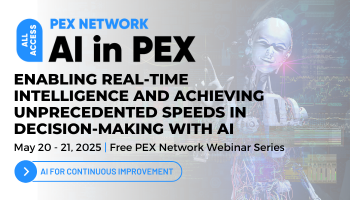United Nations: Peacekeeping needs digital transformation
The UN reveals why digital transformation is key to effective peacekeeping operations
Add bookmarkListen to this content
Audio conversion provided by OpenAI

Digital transformation enhances vital peacekeeping missions, boosting the effectiveness and efficiency of operations across diverse environments, according to the United Nations (UN).
Data provides peacekeepers with critical insights into the impact their work is having, letting them more safely and effectively advance peace and security goals for the communities they serve. However, collecting and leveraging reliable data requires managing and analyzing vast amounts of information.
When missions do not have the capacity to do this, data remains unused and opportunities to inform and strengthen operations are missed, a new blog by the UN Peacekeeping’s Digital Enablement Team has outlined.
This comes amid ongoing international peace talks that aim to end the conflict between Russia and Ukraine.
Don't miss any news, updates or insider tips from PEX Network by getting them delivered to your inbox. Sign up to our newsletter and join our community of experts.
Early crisis detection
UN Peacekeeping has been implementing a digital transformation strategy with help from member states, and efforts are bearing fruit. The peacekeeping mission in South Sudan (UNMISS) is a prime example, where investments in digital tools are having a tangible impact.
One instance is its flood management dashboard, created after devastating floods hit South Sudan in 2024. These floods not only impacted more than 700,000 people but also worsened conflict over land and resources.
UNMISS’ senior climate and security advisor, Johnson Nkem, knew that data on flooding could enhance its ability to understand flood damage and access early warnings of areas at high risk of conflict, helping to prevent tensions before they arise. His team created a database, established a baseline to see disruptions and developed a system to track how floods impact communities.
The dashboard now informs decision-making and enables targeted conflict prevention measures, according to UN Peacekeeping. For example, the team can organize peace dialogues in areas identified as high-risk, preventing conflicts from emerging between “host” communities and communities displaced by the flooding.
Watch Cherise Crenshaw-Holmes PhD, founder at Modern Work Consultancy, discuss building inclusion into digital transformation
Streamlining peacekeeping processes
Data is also helping UNMISS streamline its processes. UNMISS’s Political Affairs Division recognized that it could reduce the time required for many tasks and make information more easily accessible by digitizing reporting and document management. They took an inclusive and tailored approach to introducing digitization that has helped to build capacity across a diverse workforce
“It’s necessary to work closely with colleagues to help them adopt the tools,” said Guy Bennett, the division’s chief. “Having buy-in from senior management is also essential. It underlines that efforts are not a short-term project but strategic.”
The team focused on quick-wins and assisting staff throughout with solutions that were mostly simple but useful in enhancing efficiency and facilitating access to data and reports. They showed that digital transformation is not about elaborate solutions and big changes, but leveraging existing resources where useful to assist staff.
Join us for All Access: OPEX Digital Transformation in HR 2025
Beware the surprises of digital transformation
Digital transformation is an increasingly key component of success for modern businesses. “Digital transformation is no longer a discretionary investment: companies that want to be competitive and win in the digital economy are leading the way,” says Angela Vacca, senior research manager with IDC’s data and analytics group. Worldwide spending on digital transformation is forecast to reach almost US $4 trillion by 2027, according to the IDC Worldwide Digital Transformation Spending Guide.
However, not only is digital transformation wrought with obstacles and pitfalls, there are also many surprising (and even little-known) realties about digital transformation that leaders should be aware of. These include the truths that most projects fail, it requires continuous reinvention, a holistic approach is key, it demands proactive change management and culture change is the true challenge.
All Access: AI in PEX is 2025

All Access: AI in PEX 2025 is designed to address these challenges and empower organizations to successfully integrate AI into their process improvement initiatives. The content series will bring together industry experts, thought leaders, and practitioners to share insights, best practices, and real-world case studies.
Register Now












